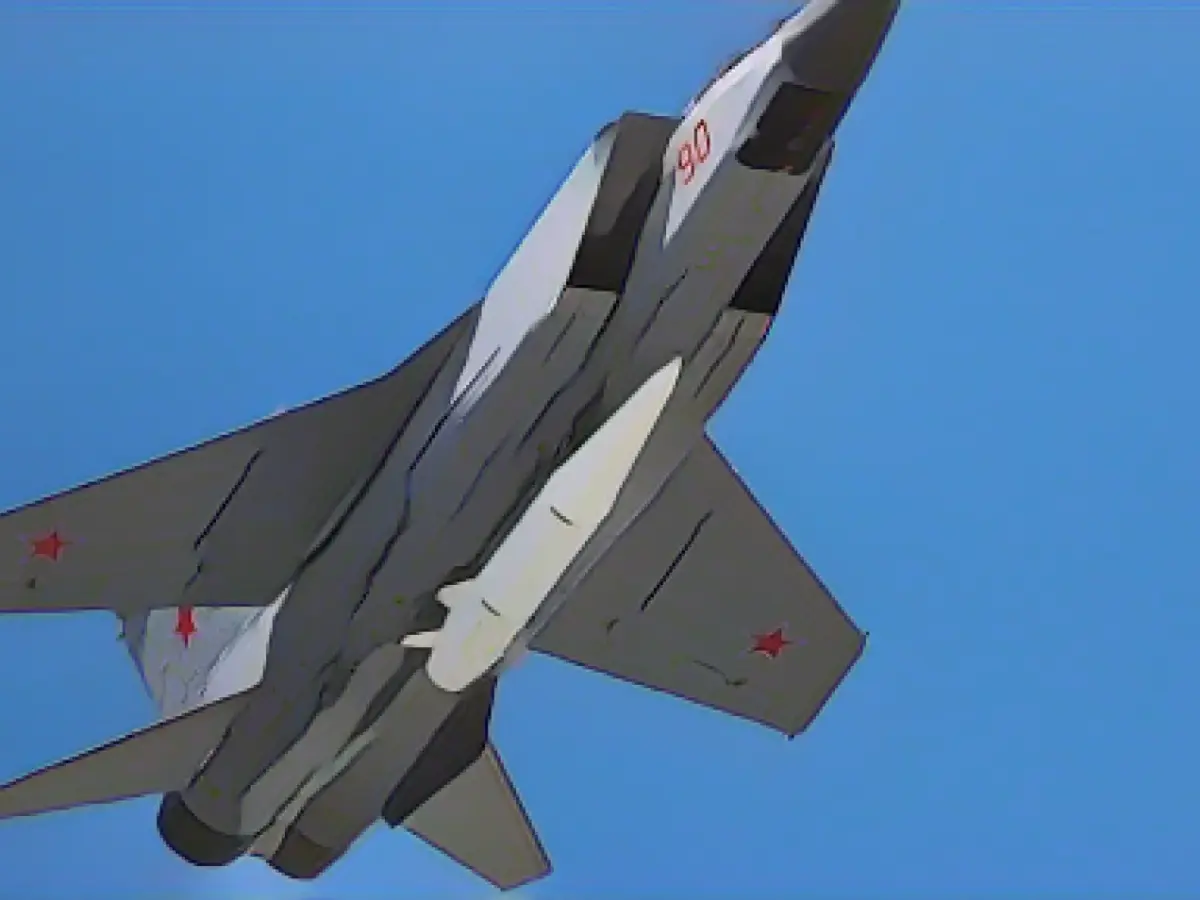Ukraine war - London: Russia deploys hypersonic missile again
According to British estimates, the Russian air force recently used a Kinschal hypersonic missile against Ukraine for the first time since August. According to the British Ministry of Defense, the target of the missile (NATO code: AS-24 Killjoy) was presumably a military airfield.
The "Killjoy" was intended for high-value and well-defended targets. NATO had given it the nickname because the alliance believes that these missiles are almost impossible to intercept with conventional air or missile defense.
In London, the hypersonic missile's missions to date have been mixed. "Many launches have probably missed their intended targets, and Ukraine has also succeeded in intercepting attacks by this supposedly "invincible" system," the ministry added.
Since the beginning of the war against Ukraine in February 2022, the British Ministry of Defense has published daily information on the course of the war. Moscow accuses London of disinformation.
Read also:
- Year of climate records: extreme is the new normal
- Precautionary arrests show Islamist terror threat
- UN vote urges Israel to ceasefire
- SPD rules out budget resolution before the end of the year
The use of the AS-24 Killjoy hypersonic rocket by Russia's air force in Ukraine has raised concerns within NATO, as these missiles are believed to be nearly impossible to intercept with conventional air or missile defense. The British Ministry of Defense has reported mixed results in Russia's missions using the hypersonic missile, with several missiles likely missing their targets and Ukraine successfully intercepting some attacks. Despite these reports, Moscow continues to accuse London of disseminating disinformation about the Ukraine war. Great Britain, as a NATO member, has been closely following the conflict and providing support to Ukraine in various forms. The deployment of such advanced weapons systems in conflicts could escalate tensions between Russia and the West, potentially leading to further escalations.
Source: www.stern.de








